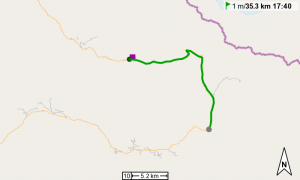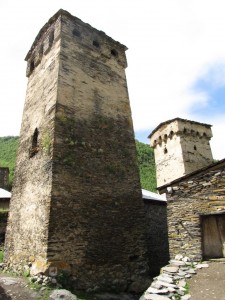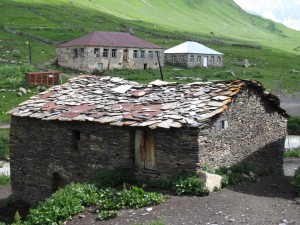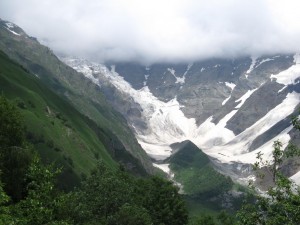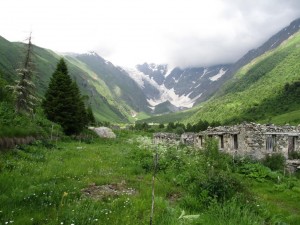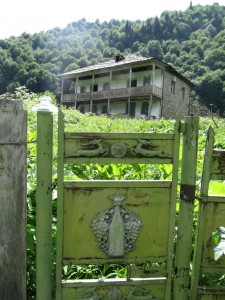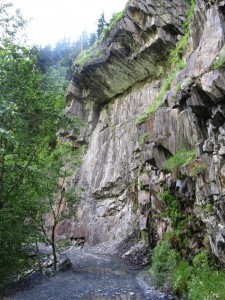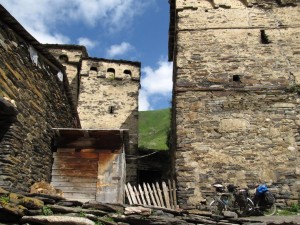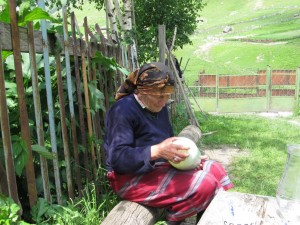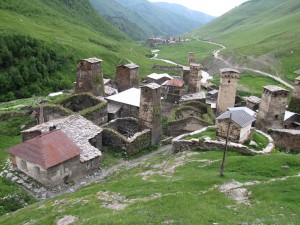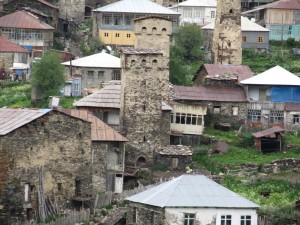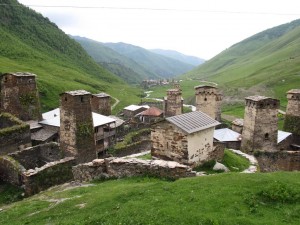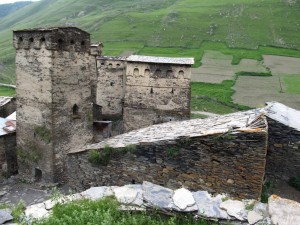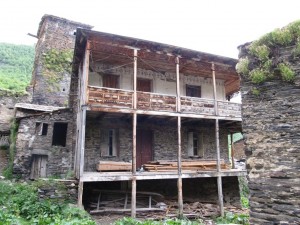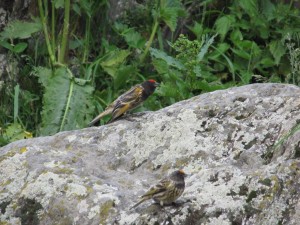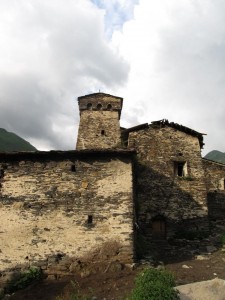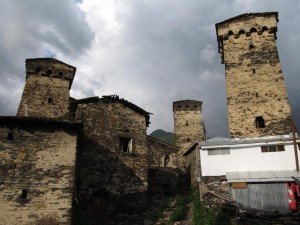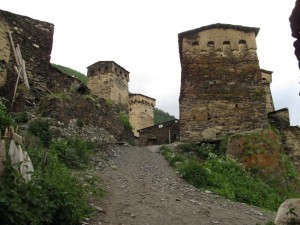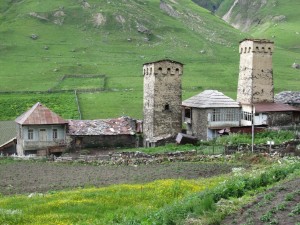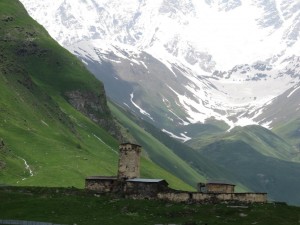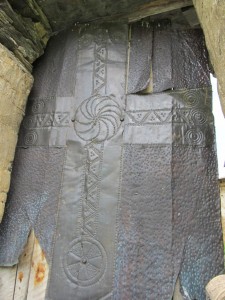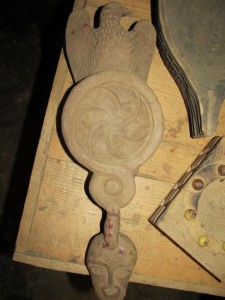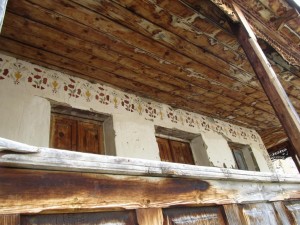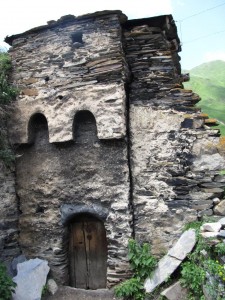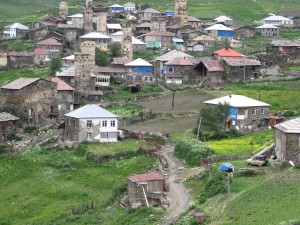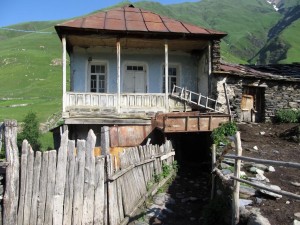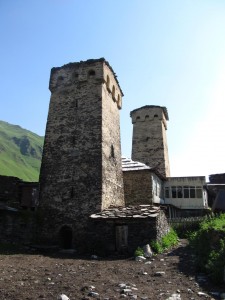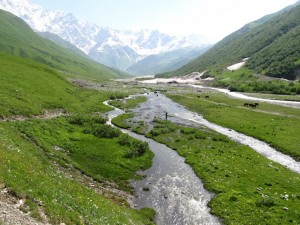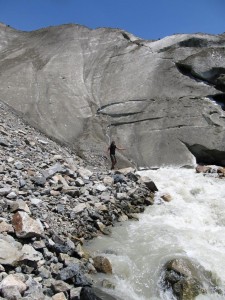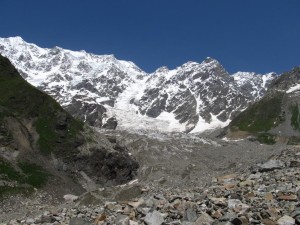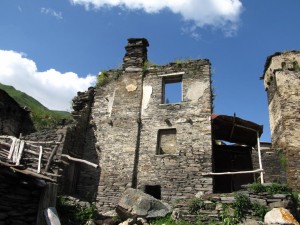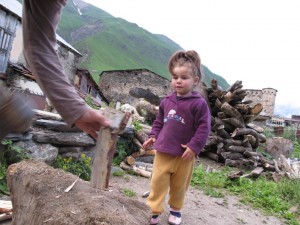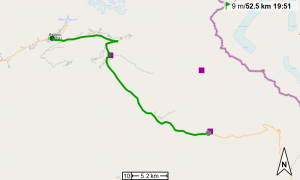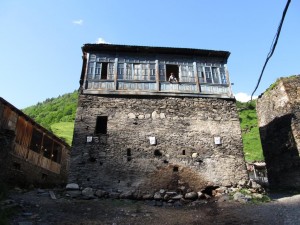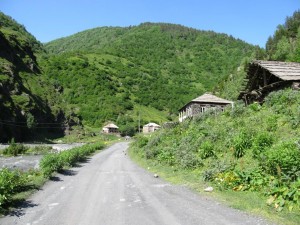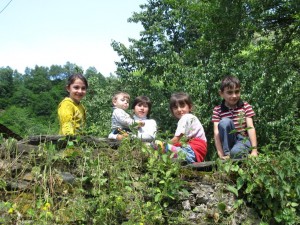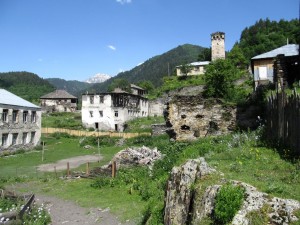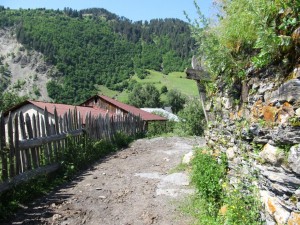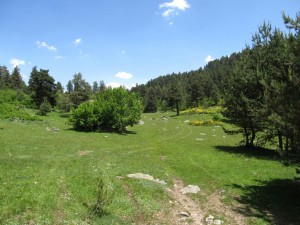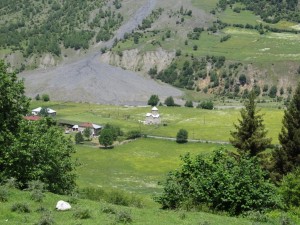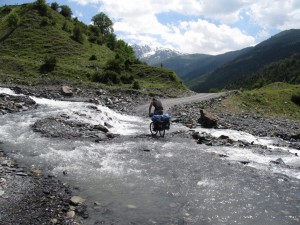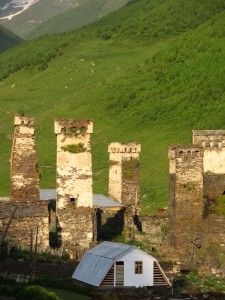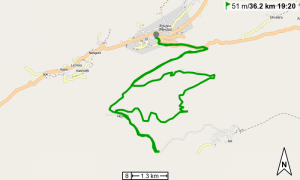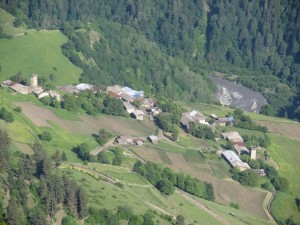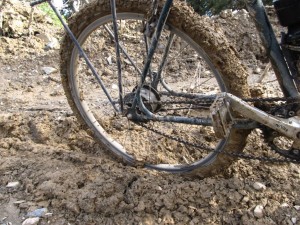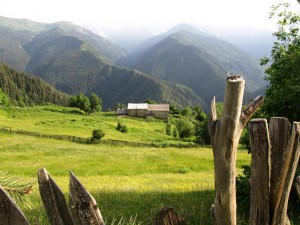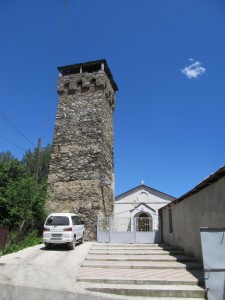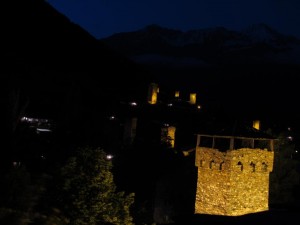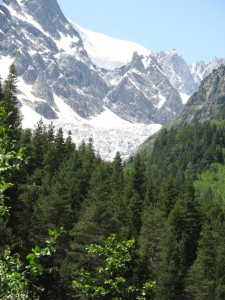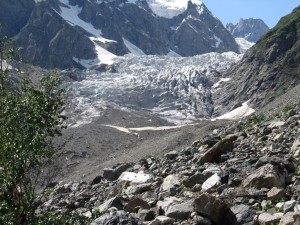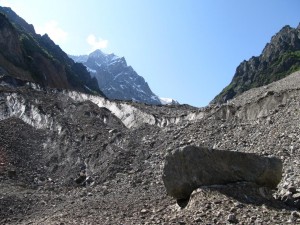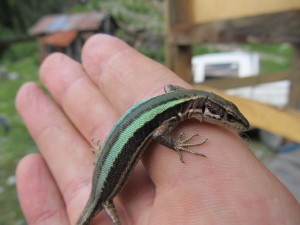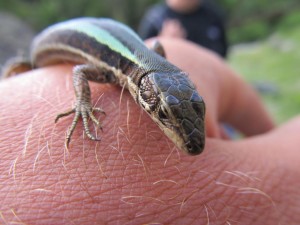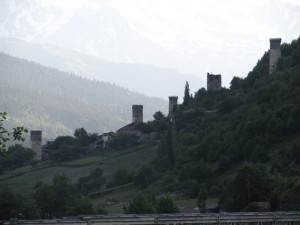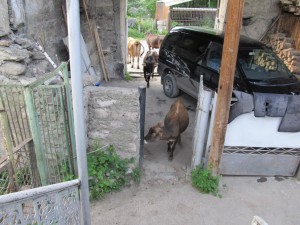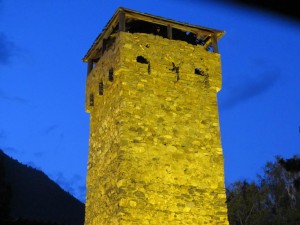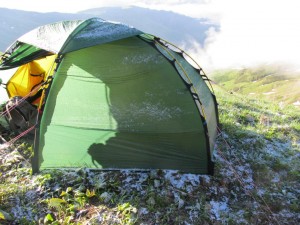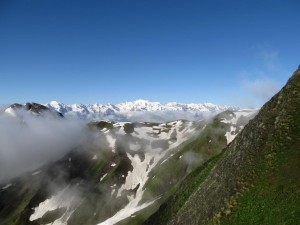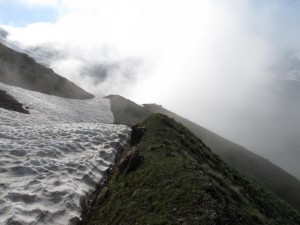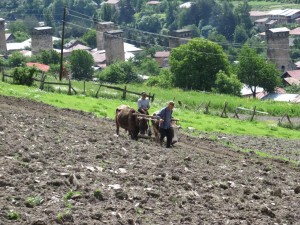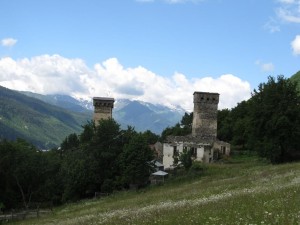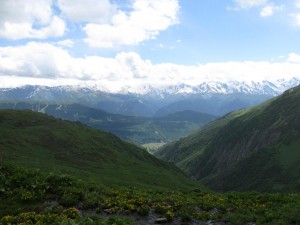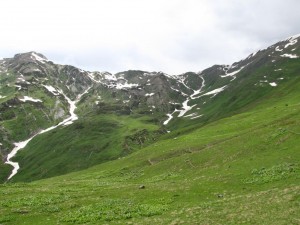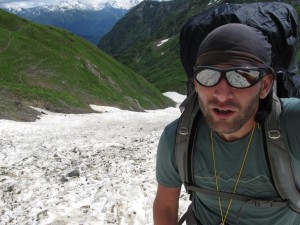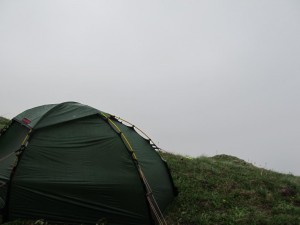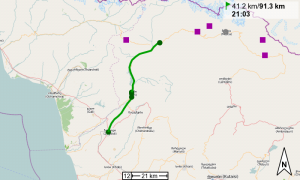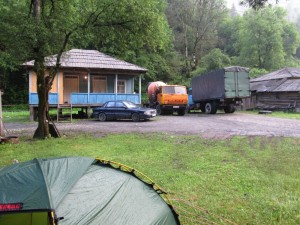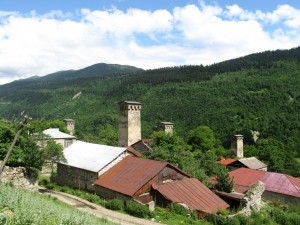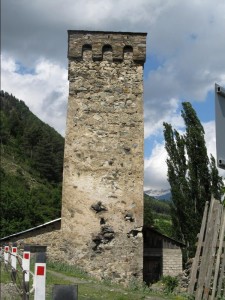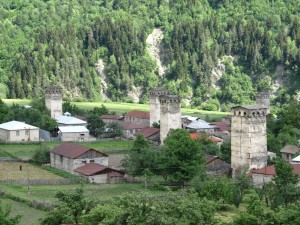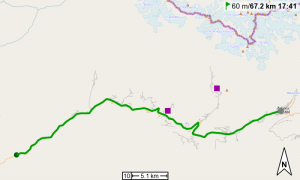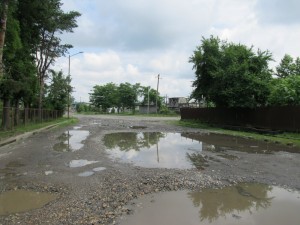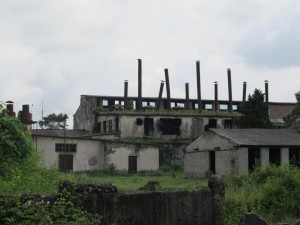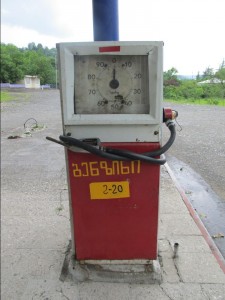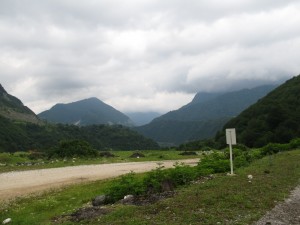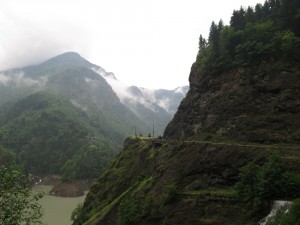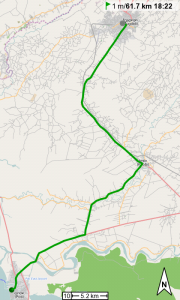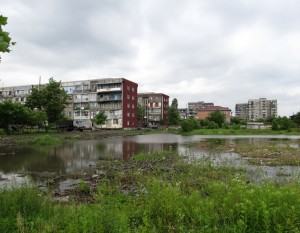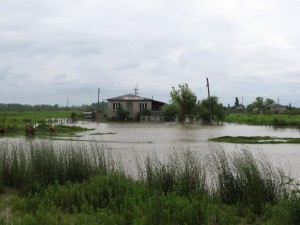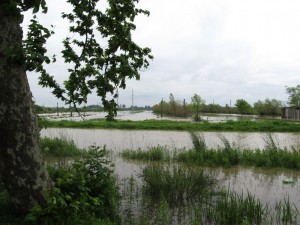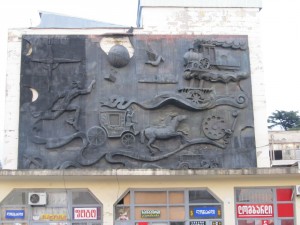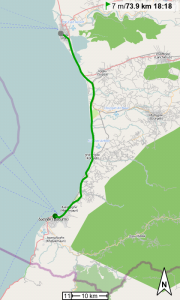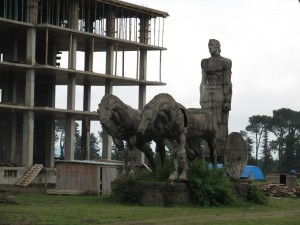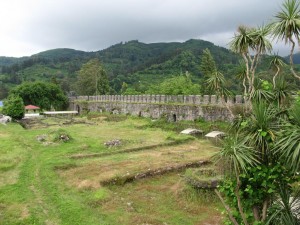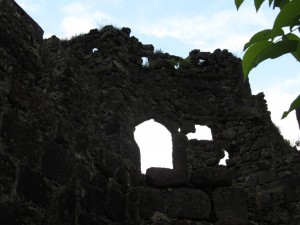Left our lovely host family shortly past 10am and went to the local treasure museum, which was closed yesterday when we went there.
It was still closed and we had to wait for half an hour until someone heard our shouting and told the officials that there were visitors. The local police officer showed up with one key. He phoned the ‘director’ of the museum who brought the other keys to open the door (three or four locks in total). The museum is located in an old Svan tower. It has icons and crosses from Svaneti churches on display, some of them really old (many things from the 11th and 12th centuries, some from the 6th century, some even older). Taking pictures was not allowed.
We left Ushguli almost half past 11 and cycled to the east. The road (read: track) climbed steadily and steeply towards the Zagaro Pass (2623m) which we crossed happily after about 9km. From then on we went downhill pretty much all the time. We’re quite happy that we didn’t attempt to go to Ushguli from this side. It is so steep it wouldn’t have been fun at all.
Came to a glacier on the south flank of the Ailama massif, which is the source of the Zeskho river. Explored a house in the abondoned hamlet (or maybe military base) of Koruldashi at the foot of the Ailama.
A few kilometers further we came to Tsara, a tiny village on the right bank of the Zeskho. At first glance it looked abandoned, too, and we crossed the river to have a closer look. Curiously, there are no defensive towers in Tsara. Found a couple of very nice-looking old houses, though. We also found people. They were strange, however. The first lady who spotted us didn’t care at all – kinda unexpected here. Then a guy followed us and we were asked where we were going. He pointed out that we were on the wrong side of the river, and said: “This is just Tsara”. It seemed obvious to us that he didn’t really want us to be there.
We continued along the Zeskho. The gorge it flowed through was amazing. High slate cliffs, thick forrest, little streams crossing the track, fabulous weather.
At the confluence of the Zeskho and the Tskhenistskali we noticed a bridge across the Zeskho that wasn’t on any of our maps. A bit curious, we crossred it and found a beautiful grassy place between the two rivers. We decided to call it a day and camp here.
Had a bath in the Tskhenistskali and lit a fire. I cooked some pasta for dinner.
We saw exactly one car all day: a Polish family traveling in the same direction as we did.
Cycled: 31km

